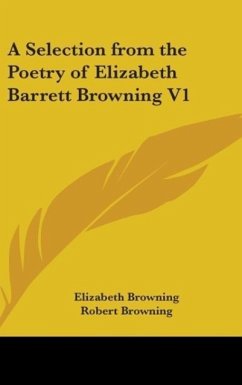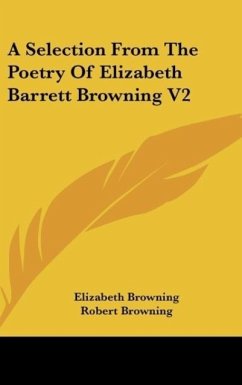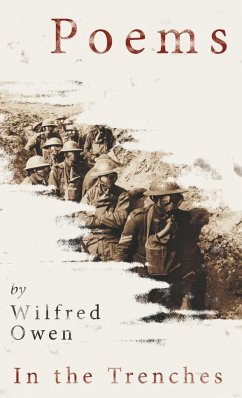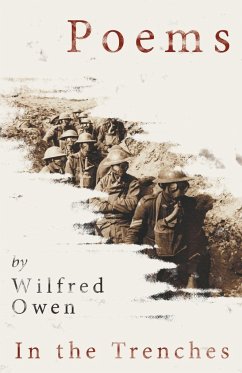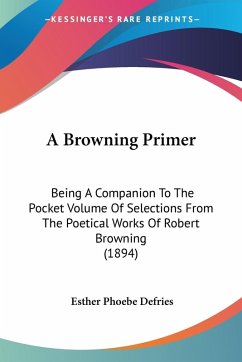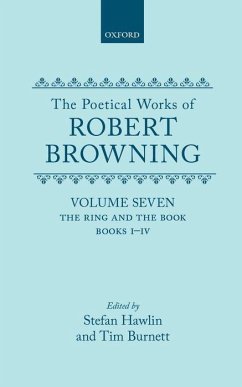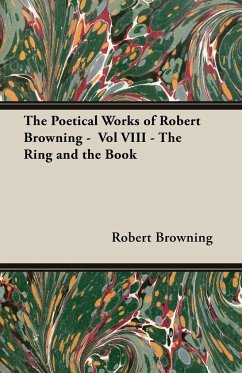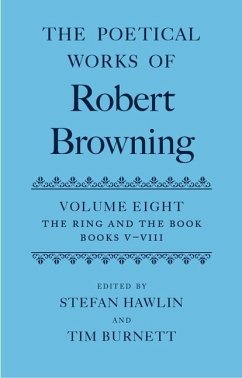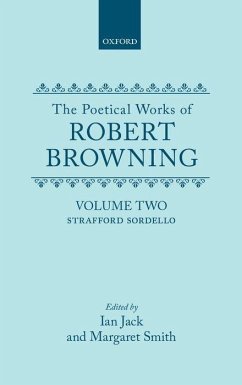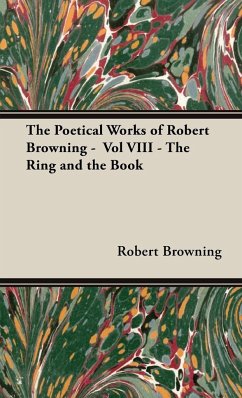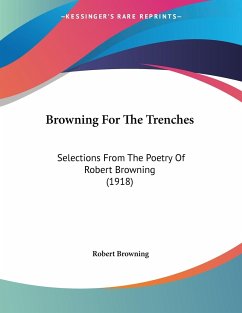
Browning For The Trenches
Selections From The Poetry Of Robert Browning (1918)
Versandkostenfrei!
Versandfertig in 1-2 Wochen
24,99 €
inkl. MwSt.

PAYBACK Punkte
12 °P sammeln!
Browning For The Trenches: Selections From The Poetry Of Robert Browning (1918) is a collection of poems written by the renowned English poet, Robert Browning. The book was published during the First World War and was specifically aimed at soldiers who were fighting in the trenches. The poems included in the book were carefully selected to provide comfort and inspiration to the soldiers during their time of need.The book contains a range of Browning's most famous poems, including ""My Last Duchess"", ""Porphyria's Lover"", and ""The Pied Piper of Hamelin"". Each poem is accompanied by an intro...
Browning For The Trenches: Selections From The Poetry Of Robert Browning (1918) is a collection of poems written by the renowned English poet, Robert Browning. The book was published during the First World War and was specifically aimed at soldiers who were fighting in the trenches. The poems included in the book were carefully selected to provide comfort and inspiration to the soldiers during their time of need.The book contains a range of Browning's most famous poems, including ""My Last Duchess"", ""Porphyria's Lover"", and ""The Pied Piper of Hamelin"". Each poem is accompanied by an introduction that provides context and background information on the poem, making it easier for readers to understand and appreciate the work.The book was published at a time when soldiers were facing unimaginable horrors on the battlefield, and it was hoped that the poems would provide a sense of comfort and hope to those who were fighting for their country. The poems are written in Browning's signature style, with complex language and intricate imagery that requires careful reading and interpretation.Overall, Browning For The Trenches: Selections From The Poetry Of Robert Browning (1918) is a timeless collection of poems that continue to inspire and move readers to this day. It is a testament to the power of poetry to provide comfort and hope in even the darkest of times.This scarce antiquarian book is a facsimile reprint of the old original and may contain some imperfections such as library marks and notations. Because we believe this work is culturally important, we have made it available as part of our commitment for protecting, preserving, and promoting the world's literature in affordable, high quality, modern editions, that are true to their original work.



